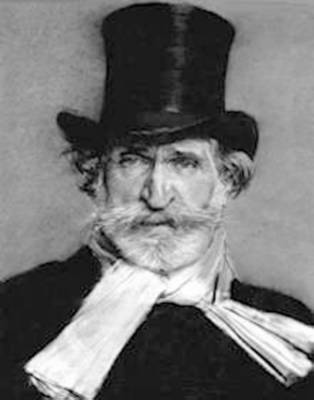It was twenty five years ago, and I was attending my first opera, Verdi's masterpiece 'La Traviata'. Sitting amidst a finely attired and coiffed audience, my reaction was swift. Mouth agape, I thought. What the heck is this?
It sounded like Italian circus music, although of the finest quality. And they were all singing, no screaming in Italian! What were they all jabbering about? What was the point if you couldn't understand their point. They could all be screaming multiplication tables for all I knew. So I exited stage right if a manner of speaking, hoping to catch at home the latest rerun of Star Trek.
Naturally, of course, this was the reaction of a cultural barbarian, to which I have repented with endless and appreciative visits to the opera. Yet, looking back at my first operatic experience, I actually did have a point. Why indeed sing in Italian if the audience grammatically picks up nothing?

Joe Green
In Hans Christian Anderson's fairy tale, 'The Emperor's New Clothes', the Emperor paraded around town, quite naked of course, but clad in the finest invisible and sheer attire, so sheer in fact that it was weightless. The people applauded, except for a little boy, who exclaimed that the emperor had no clothes. Although the audience and the emperor recognized at once the error of their ways, I'm not so sure if honest candor works so well in real life.
You see, in spite of my fondness for opera, there's still no real reason to sing in a native language otherwise incomprehensible to the audience. Purists may protest that singing in English ignores the natural purity and poetry of the original language, an argument that holds water I suppose if you think that singing in German sounds wonderful and that Shakespeare would also sound good with an Italian accent. Anyways, I don't buy it.
It's tradition really, habit, the fact that doing things one way for a long time confers some logical inevitability to doing it that same way forever. Like sitting on a favorite chair, taking the same route to work, or not eating pizza for breakfast, old habits die hard, and we will tend to justify them emotionally even if we cannot justify them logically. For opera, the purists squawked when subtitles were finally added below the action on stage, but settled down as the new habit of actually following the plot kicked in. I don't know if opera will ever take the more radical step of singing in the accessible mother tongue, any more than we will ever think of Giusseppe Verdi in his proper English translation, Joe Green. But it's a thought.
It sounded like Italian circus music, although of the finest quality. And they were all singing, no screaming in Italian! What were they all jabbering about? What was the point if you couldn't understand their point. They could all be screaming multiplication tables for all I knew. So I exited stage right if a manner of speaking, hoping to catch at home the latest rerun of Star Trek.
Naturally, of course, this was the reaction of a cultural barbarian, to which I have repented with endless and appreciative visits to the opera. Yet, looking back at my first operatic experience, I actually did have a point. Why indeed sing in Italian if the audience grammatically picks up nothing?

Joe Green

In Hans Christian Anderson's fairy tale, 'The Emperor's New Clothes', the Emperor paraded around town, quite naked of course, but clad in the finest invisible and sheer attire, so sheer in fact that it was weightless. The people applauded, except for a little boy, who exclaimed that the emperor had no clothes. Although the audience and the emperor recognized at once the error of their ways, I'm not so sure if honest candor works so well in real life.
You see, in spite of my fondness for opera, there's still no real reason to sing in a native language otherwise incomprehensible to the audience. Purists may protest that singing in English ignores the natural purity and poetry of the original language, an argument that holds water I suppose if you think that singing in German sounds wonderful and that Shakespeare would also sound good with an Italian accent. Anyways, I don't buy it.
It's tradition really, habit, the fact that doing things one way for a long time confers some logical inevitability to doing it that same way forever. Like sitting on a favorite chair, taking the same route to work, or not eating pizza for breakfast, old habits die hard, and we will tend to justify them emotionally even if we cannot justify them logically. For opera, the purists squawked when subtitles were finally added below the action on stage, but settled down as the new habit of actually following the plot kicked in. I don't know if opera will ever take the more radical step of singing in the accessible mother tongue, any more than we will ever think of Giusseppe Verdi in his proper English translation, Joe Green. But it's a thought.
No comments:
Post a Comment